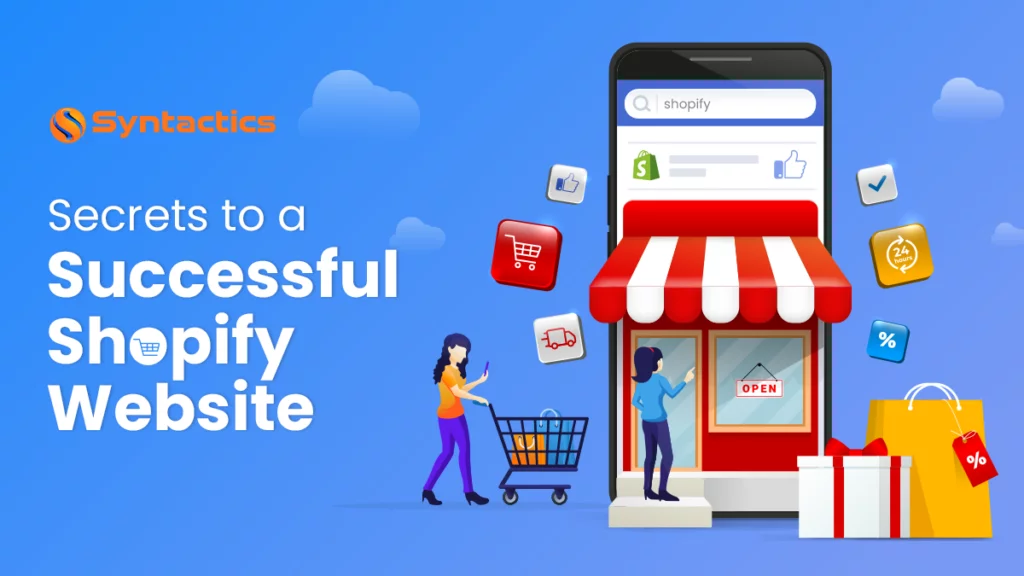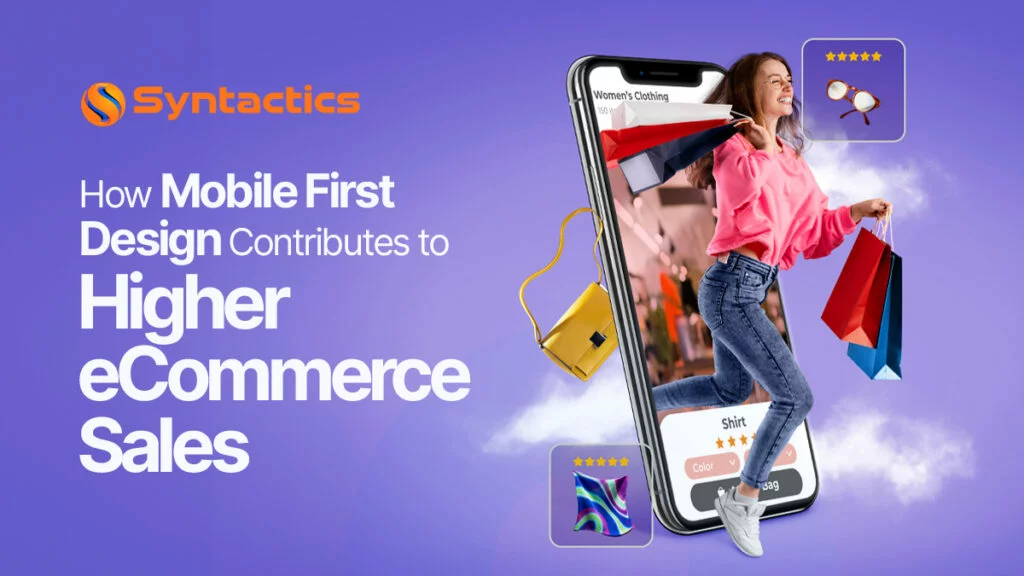
Expanding Business Horizons: Dropshipping on Shopify
Dropshipping presents numerous opportunities for business expansion. By partnering with a third-party supplier who manages inventory and storage, you can sell and ship orders directly to customers. Many cost-conscious business owners partner with developers from an eCommerce web design and development company to set up a dropshipping website on Shopify.
The dropshipping market is rapidly growing. According to Dropshipping Market Size, it’s projected to reach $351.8 billion this year. Furthermore, it’ll continue to grow in the coming years, providing businesses with even more opportunities for success.
What is Dropshipping?
Dropshipping is a business model where products to be sold come from suppliers, including manufacturers, warehouse owners, and even individuals who craft homemade products.
In dropshipping, the business owner or dropshipper purchases products at wholesale prices from a supplier and then sets the retail price for customers on their Shopify store. They accept customers’ orders and forward them to the supplier for fulfillment.
Afterward, the dropshipping supplier will fulfill those orders, shipping them to customers on the business owner’s behalf.
This business model means you won’t need to invest in storage space or risk having unsold inventory. As a result, you can allocate more resources to other business activities, such as digital marketing and sales.
How the Dropshipping Business Model Works
Here’s a breakdown of how a dropshipping business model works:
1. Partner with a reliable dropshipping supplier. Look for products you wish to sell, whether through an individual business or dropshipping apps.
2. Create your online store. You can collaborate with a reliable eCommerce web design and development company to create an online store for dropshipping.
3. Take customers’ orders. Customers will visit your online shop to place orders and pay for them.
4. Forward your customers’ orders to your partner supplier. Once a customer places and pays for an order, you’ll send the details to your dropshipping suppliers.
5. The supplier prepares and ships the order. Your dropshipping supplier will handle order preparation and ship it directly to your customer.
6. The customer receives their order. Though your customer will receive their orders from your supplier, you, as a business owner, will manage customer service.
Outsource Customer Service to a Virtual Assistant
and Save Time!
What are the Benefits of Dropshipping?
According to Top 10 Dropshipping Statistics, dropshipping can boost an online shop’s profitability by as much as 50%. This is simply because dropshipping doesn’t require business expenses such as initial inventory purchases and logistics.
Here are even more benefits of dropshipping:
Easy to Start
Dropshipping makes it easy to set up your own business online with minimal initial capital and effort. As a business owner, you only need to do the following:
- Select products;
- Find an eCommerce platform for dropshipping (such as Shopify or WooCommerce) to sell them, and
- Receive customer orders.
Low Start-Up Costs
One of the biggest appeals of dropshipping is that it doesn’t require a considerable investment when setting up your online store. This allows you to focus on your marketing strategies and maintain customer satisfaction.
Wide Product Selection
Since you don’t need to purchase inventory upfront, you gain access to a wide selection of products. Thus, you can easily modify your product offerings according to customer demand.
No Inventory Management
As a dropshipping store owner, you don’t need to manage inventory in a storage facility, which saves on warehousing costs. Moreover, your suppliers will handle the inventory, storage, and packaging for you.
Scalability
Since dropshipping offers excellent scalability, you can easily add new products and suppliers to your online shop as your business grows. In addition, your workload doesn’t necessarily increase, so you can expand your reach more efficiently.
What are the Types of Dropshipping?
There are different approaches to dropshipping you can take based on your goals and business model:
Product Reselling
As the most common type of dropshipping, product reselling is ideal for those with extensive knowledge of a specific industry or demographic. The product reselling dropshipper is a middleman who resells various products from different suppliers to customers.
An example of product reselling is creating a store featuring different toys suitable for children.
Business Extensions
Business extensions are beneficial for retail stores that don’t have an established online presence. Through dropshipping, eCommerce platforms like Shopify can serve as online storefronts.
When a customer places an order via your site, the retail store will ship the goods to the customer. An example of business extension dropshipping is partnering with local artists to sell their artworks in other locations.
Product Creation
This type of dropshipping requires creativity, as it lets you focus on design and marketing. As the name suggests, you can create or customize a product but rely on a supplier for manufacturing and order fulfillment.
One example of product creation is assembling a product bundle or kit for each customer.
Print on Demand
This last dropshipping type involves selling products that have printed text or images on them, including:
- T-shirts;
- Mugs;
- Tumblers;
- Lanyards, etc.
For example, a music artist might want to expand their fanbase by selling T-shirts with their image or logos printed on the front.
Need Professional Product Design Services?
Reach Out to Our Graphic Designers Today!
How to Create a Dropshipping Store on Shopify
Building a profitable dropshipping business website on Shopify requires a strong foundation in design, product sourcing, and marketing. Business owners can utilize website creation platforms to construct a robust online storefront.
To ensure success, consider partnering with a trusted eCommerce web design and development company that’s equipped with the expertise necessary to create a high-converting store.
Here’s a guide to creating your Shopify store:
Choose your niche before creating a Shopify account.
To select the right niche for your dropshipping business, it’s important to have identified your target audience. After all, your niche will define your brand and product catalog. It’s best to find products that have high demand but minimal competition.
Afterward, you can create your Shopify account if you don’t already have one. If you’re not familiar with the platform, you may get assistance from an eCommerce developer to help with the signup process.
Design your Shopify dropshipping store.
Professional design is important to building customer trust. According to Zippia, 94% of a website’s first impressions are related to design.
Thus, many business owners collaborate with a reliable eCommerce web design and development company to create their dropshipping stores. They can ensure that the website is mobile-responsive and easy to navigate.
Furthermore, you can customize your store’s appearance, such as choosing the right themes for your preferred niche.
Find Out How Our Web QA Testers Can Ensure
a Dynamic Shopify Store For Your Business!
Install dropshipping apps and payment gateways.
Consider installing dropshipping apps to help you manage orders, shipping, and inventory even though you’re not holding stocks yourself.
Fortunately, an eCommerce developer can integrate Shopify with various dropshipping apps, such as Oberlo, DSers, and Spocket.
Then, a developer can add a payment gateway to Shopify, such as PayPal or Stripe. They can even set up your shipping settings to adjust rates based on your supplier’s locations and delivery times.
Optimize your website for online search.
Ensure your online shop implements a Search Engine Optimization (SEO) strategy for better search engine rankings. A skilled eCommerce web design and development company can help you optimize your website’s structure, page speed, and overall SEO performance.
In addition, a skilled digital marketer can implement strategies to attract potential customers. This includes social media, email marketing, and content.
Partner with a Skilled Digital Marketing Agency Today!
Launch and scale up your business.
Once optimized, it’s time to launch your dropshipping business on Shopify.
As your business expands, monitor its performance metrics regularly so you can continually improve your store’s eCommerce web design, product selection, and marketing efforts.
Learn How Our Dedicated Team of Experts
Can Help Build Your Online Presence on Shopify!
Start Your Dropshipping Business on Shopify Today!
An eCommerce dropshipping website with functional and modernized product pages can reflect your brand, boost sales, and expand your business horizons.
Consider teaming up with an eCommerce web design and development company in the Philippines to help you start on your dropshipping business journey today!




















Comment 0